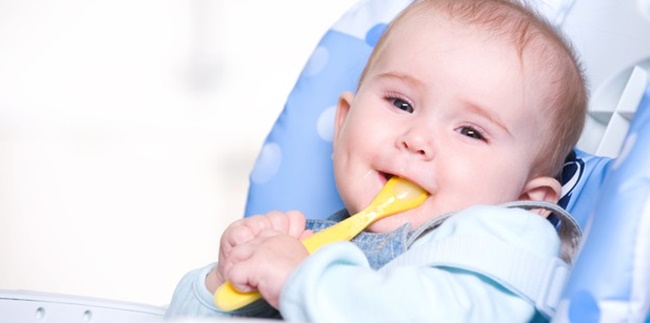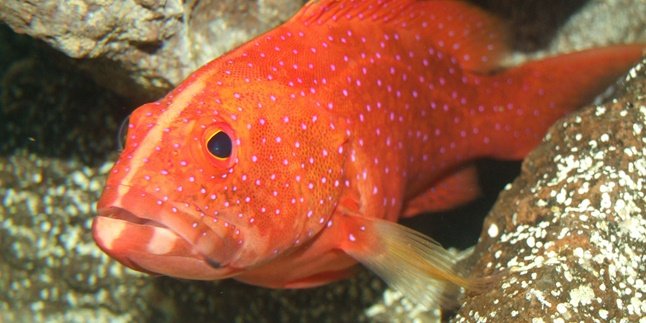Kapanlagi.com - Baby regurgitation is a condition that is commonly experienced at an age of less than one year or even a few weeks. The cause of baby regurgitation can occur due to various triggering factors including excessive consumption of milk. This condition often makes parents worried when they see their small baby regurgitating.
Regurgitation is a condition experienced by babies when they expel consumed food or drink such as milk. Yes, regurgitation is almost similar to vomiting but different. This condition occurs in newborn babies or those who are less than one year old but with a frequency that is not excessive like vomiting. In addition, regurgitation is a normal condition experienced by every baby when they, for example, consume too much food.
In adults, this condition can occur due to various factors, both medical and common factors, for example, acid reflux or side effects of medication. What about babies?
In babies, regurgitation can be considered normal if the little one feels comfortable after regurgitating, not fussy, and able to eat well. This condition tends to not affect the baby's weight even if they experience regurgitation. However, there are various causes of baby regurgitation that parents need to know in order to understand how to deal with it properly.
The causes of baby regurgitation that need to be known are discussed below. Here are the causes of baby regurgitation that have been summarized by kapanlagi.com from various sources.
1. Overfeeding with Breast Milk

(credit: freepik.com)
The first cause of baby spit-up can occur when the baby is overfed with breast milk or formula. As we know, babies still have a partially functioning body system. This includes an underdeveloped digestive system and a small stomach.
Therefore, when the baby consumes too much food or breast milk, the digestive system cannot accommodate all of it. As a result, spit-up becomes one of the effects of overfeeding with breast milk.
2. Experiencing Allergies
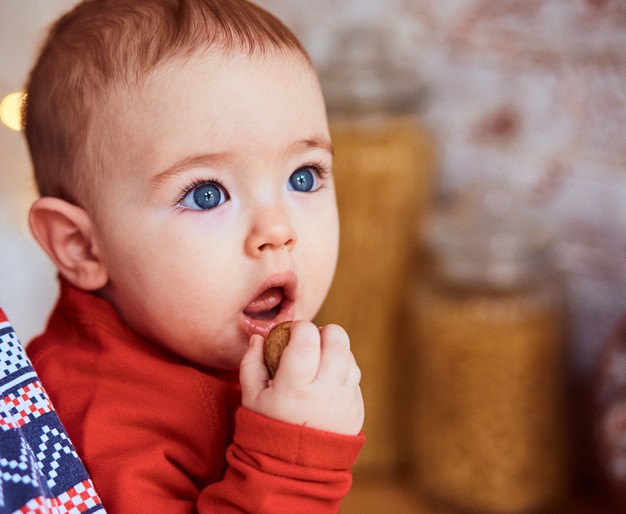
(credit: freepik.com)
The next cause of baby spit-up can occur when the baby experiences allergies. According to verywellfamily.com, spit-up in babies can also be caused by allergies. The baby may be sensitive or allergic to certain foods or drinks.
In this case, the allergenic foods or drinks come from the mother's diet and are transferred into breast milk. As a result, the baby may experience spit-up due to an allergic reaction.
3. Incorrect Breastfeeding Position
The cause of baby spitting up can also be due to an incorrect breastfeeding position. For example, the mother breastfeeds the baby while lying sideways while the little one is lying on his back. As reported by liputan6.com, this can cause breast milk to not go to the digestive tract but instead enter the respiratory tract. As a result, the baby can experience spitting up due to an incorrect breastfeeding position.
4. Swallowing Air While Nursing

(credit: freepik.com)
Swallowing too much air can also be a cause of baby spitting up. This condition can occur when the mother breastfeeds the baby. Where the frequency of breastfeeding very quickly causes the baby to also swallow a lot of air along with breast milk. As a result, it can trigger the baby to spit up while nursing because of swallowing too much air. Moreover, this condition is prone to occur if the mother experiences a strong let-down reflex that causes too much breast milk to come out as reported by verywellfamily.com.
5. The Size of the Milk Bottle is Too Big

(credit: freepik.com)
If the baby uses a milk bottle or nipple that is too big, which causes the baby to drink too much milk, it can trigger regurgitation. Yes, the cause of baby regurgitation can also be due to the size of the bottle being too big. As a result, the baby consumes excessive milk, making them too full and triggering regurgitation. In certain conditions, the use of a nipple can also cause the baby to choke, which eventually leads to regurgitation.
6. Clothing is Too Tight or Small
The use of swaddling or wraps on babies is certainly important to prevent various health risks, including protecting the umbilical cord. The same goes for swaddling to provide comfort and warmth for the baby. However, if the use of swaddling, wraps, or certain clothing is too tight, small, and tight, it can actually trigger regurgitation. Therefore, it is advisable for mothers to pay attention to the use of swaddling or clothing for the baby to ensure comfort for their little one.
7. Sleeping Position on Stomach

(credit: freepik.com)
Just like adults, if the sleeping position is incorrect or wrong, it can cause health problems. This can also happen to babies, for example, sleeping on their stomach can actually cause them to spit up. According to liputan6.com, one of the causes of babies spitting up might be the sleeping position on their stomach. Therefore, avoid putting babies to sleep on their stomach, especially after eating or consuming milk.
8. How to Deal with Baby Spitting Up
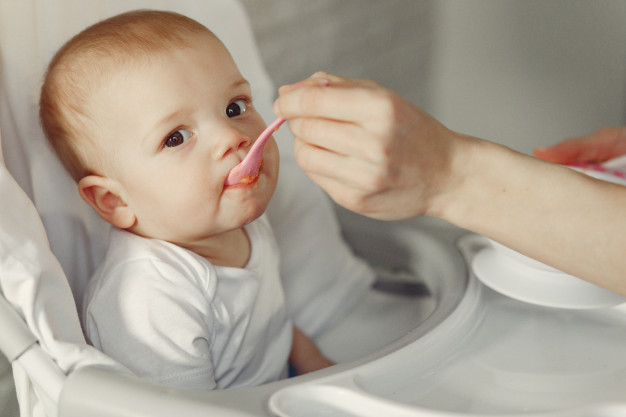
(credit: freepik.com)
After knowing some of the causes of baby spitting up, it is also important to understand how to deal with it. Here are some ways to deal with baby spitting up as reported by liputan6.com:
- Avoid overfeeding the baby. In other words, the way to deal with baby spitting up is by giving them enough food in small amounts but frequently.
- Mothers can position the baby upright or carry them for a while after breastfeeding to prevent them from spitting up.
- Use a bottle with the right size and not too big to prevent the baby from spitting up.
- Avoid the sleeping position on the stomach after the baby has been breastfed.
9. Conditions of Baby Spit-up that Need to Be Watched Out
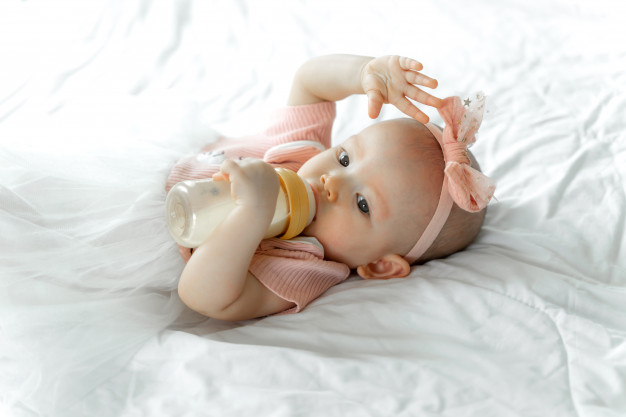
(credit: freepik.com)
Although spit-up is a normal condition that occurs in babies, there are also several conditions of spit-up that parents need to watch out for. This is because it could be a sign of certain problems. In this case, here are several conditions of baby spit-up that need to be watched out for:
- Causes weight loss or no weight gain.
- Vomiting green or yellow fluid.
- Loss of appetite or refusal to breastfeed.
- Stool mixed with blood.
- Easily fussy and cries for more than three hours a day.
- Experiencing difficulty breathing.
Those are the 7 causes of baby spit-up that need to be known. Consultation and examination with a doctor can be done if experiencing abnormal symptoms.
(kpl/nlw)
Disclaimer: This translation from Bahasa Indonesia to English has been generated by Artificial Intelligence.
